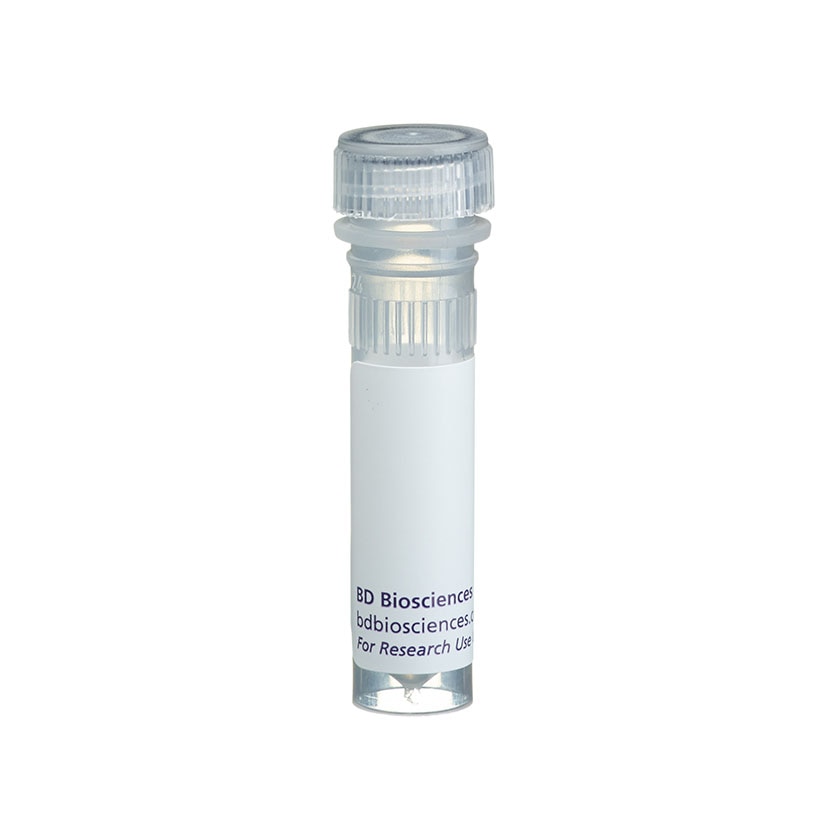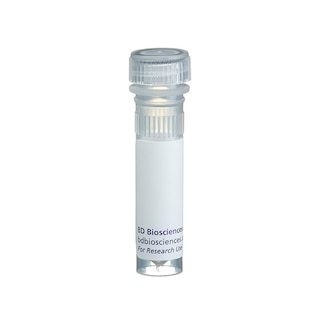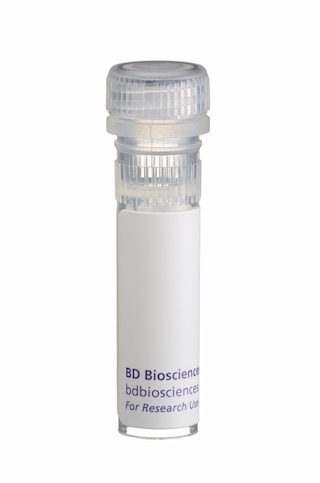Old Browser
Looks like you're visiting us from {countryName}.
Would you like to stay on the current country site or be switched to your country?


Regulatory Status Legend
Any use of products other than the permitted use without the express written authorization of Becton, Dickinson and Company is strictly prohibited.
Preparation And Storage
Product Notices
- Since applications vary, each investigator should titrate the reagent to obtain optimal results.
- An isotype control should be used at the same concentration as the antibody of interest.
- Please refer to www.bdbiosciences.com/us/s/resources for technical protocols.
Companion Products


The GIR-208 antibody recognizes the extracellular region of CD119 which is also known as the alpha chain subunit (80-95 kDa glycoprotein) of the human interferon-γ receptor (IFN-γRα). The functionally active-form of the human IFN-γ receptor consists of two (or more) subunits, with IFN-γRα responsible for IFN-γ binding and both the IFN-γRα and β chains required for the transduction of biologic responses. The IFN-γ receptor α chain (CD119) is expressed on the surface of most human cells (except mature erythrocytes) including monocytes, macrophages, T cells, B cells, NK cells, neutrophils, fibroblasts, epithelial cells, and endothelium. Binding of 125I-labeled GIR-208 antibody to IFN-γRα+ cells is reported to be specifically inhibited in the presence of excess IFN-γ. GIR-208 does not cross react with IFN-γ as tested by ELISA. The ability of this antibody to bind to IFN-γ receptors of species other than human has not been determined. The immunogen used to generate this hybridoma was human IFN-γRα purified from human placenta. The GIR- 208 has been reported to block the binding of 125I-human IFN-γ to IFN-γRα+ cells as well as purified, soluble human IFN-γRα. GIR-208 is a neutralizing antibody that has been shown to neutralize the anti-viral activity of IFN-γ on WISH cells in a dose-dependent fashion.
Development References (3)
-
Bach EA, Aguet M, Schreiber RD. The IFN gamma receptor: a paradigm for cytokine receptor signaling. Annu Rev Immunol. 1997; 15:563-591. (Biology). View Reference
-
Peyman JA, Hammond GL. Localization of IFN-gamma receptor in first trimester placenta to trophoblasts but lack of stimulation of HLA-DRA, -DRB, or invariant chain mRNA expression by IFN-gamma. J Immunol. 1992; 149(8):2675-2680. (Biology: Flow cytometry). View Reference
-
Sheehan KC, Calderon J, Schreiber RD. Generation and characterization of monoclonal antibodies specific for the human IFN-gamma receptor. J Immunol. 1988; 140(12):4231-4237. (Biology: Blocking, Neutralization, Western blot). View Reference
Please refer to Support Documents for Quality Certificates
Global - Refer to manufacturer's instructions for use and related User Manuals and Technical data sheets before using this products as described
Comparisons, where applicable, are made against older BD Technology, manual methods or are general performance claims. Comparisons are not made against non-BD technologies, unless otherwise noted.
For Research Use Only. Not for use in diagnostic or therapeutic procedures.
Report a Site Issue
This form is intended to help us improve our website experience. For other support, please visit our Contact Us page.